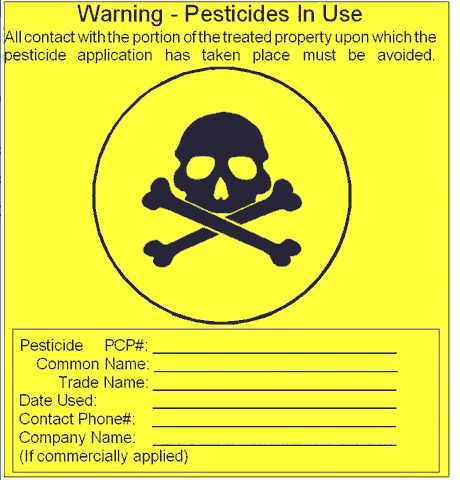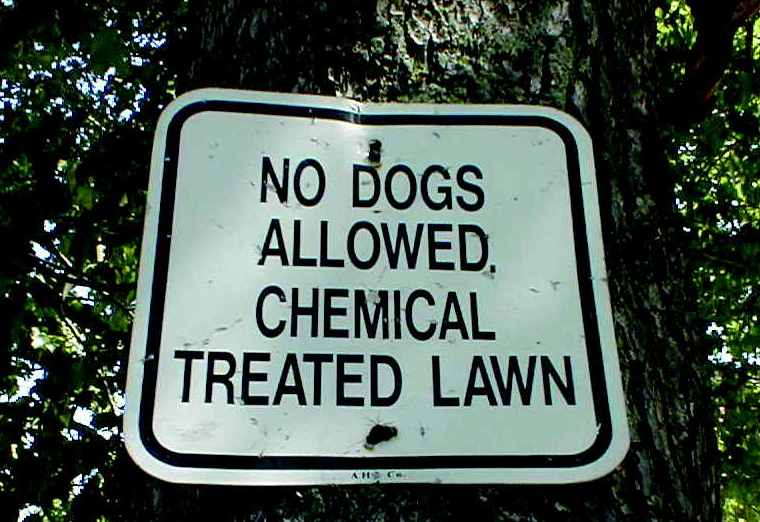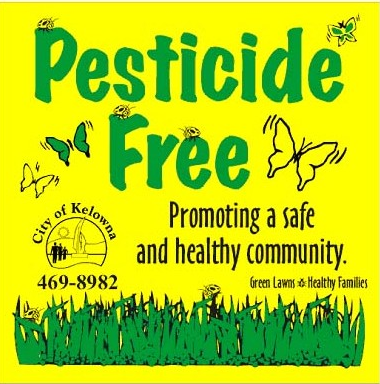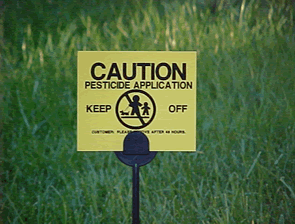View this post on Instagram
Please don’t poison your yard. We need to protect our bees, insects, spiders, squirrels, birds, and cats, and dogs, and children, and air and water.
Update: top 10 emailed article from the NY Times: The Toxic Brew in our Yards. “The United States Fish and Wildlife Service says homeowners use up to 10 times more chemicals per acre than farmers do.”
It’s far more poisonous than all the pesticides we pour on Farms. And it’s in your ‘hood.
Caution: It’s all over your neighborhood: and it causes cancer, and harms children and pets most easily.
I sometimes walk barefoot. Children often do. My dog likes to chew on grass. Is this bad for us?
This morning, in the green cradle that is Boulder Valley, I drank some organic coffee, hopped on my bike and, with my rescue dog, went downtown—where local, independent business proliferate. Returning, I came across a sign on a neighbor’s lawn.
Pesticides, especially when sprayed on bushes and trees, can easily waft onto other neighbors’ lawns.
“Pesticide,” as most of us know, is a fancy word for “poison.” Ingested through food (say, on your apple tree), it’s really bad. Runoff into our waterways, real bad. Rolling around in it, not great (as founder of Pangea Organics Josh Onysko likes to remind people, our skin is 87% absorbent of whatever’s put on it, it’s like a big sponge). And yet we fail to connect the dots between cancer (click here for resources), neurological and reproductive disorders and birth defects on the one hand…and our casual everyday use of pesticides on the other hand. Lawn and garden pesticides are also leading cause of bird deaths, dead waterways and dead pollinators (bees…).

And yet, 76 million pounds of pesticides are applied residentially (not counting our schools and…egad, hospitals) each year. That’s 75% of American homes? So why do we hate dandelions (which can be eaten or made into wine, after all) more than we love our families?
Because, though pesticides are named on the EPA’s list of endocrine disruptors, we don’t think of pesticides—or, for that matter, Windex and the other charming chemicals beneath our sinks—as poisons.
Some cities have organized “pesticide-free” campaigns (click images below for more resources)

And yet, with cigarette smoking, we’ve seen how a populace, once the facts are clear, can move to separate those who want to use a poisonous product that just happens to have some nice effects from those who want to stay healthy. Smokers, for example, aren’t allowed to smoke within 15 feet of entrances, let alone indoors, in Boulder.
So why do we allow indiscriminate pesticide use? My question for you lawyers out there is, can we sue neighbors, or better yet pesticide companies, for poisoning (even if in small doses) and harming the long-term health of our children, pets and loved ones? Would seem like a candidate for a class-action suit.

And what are other ways to encourage natural lawn care by our neighbors, city governments and farmers?

Here’s 10 Tips from the EPA on how to protect your children and pets.


 Share on bsky
Share on bsky




Read 10 comments and reply